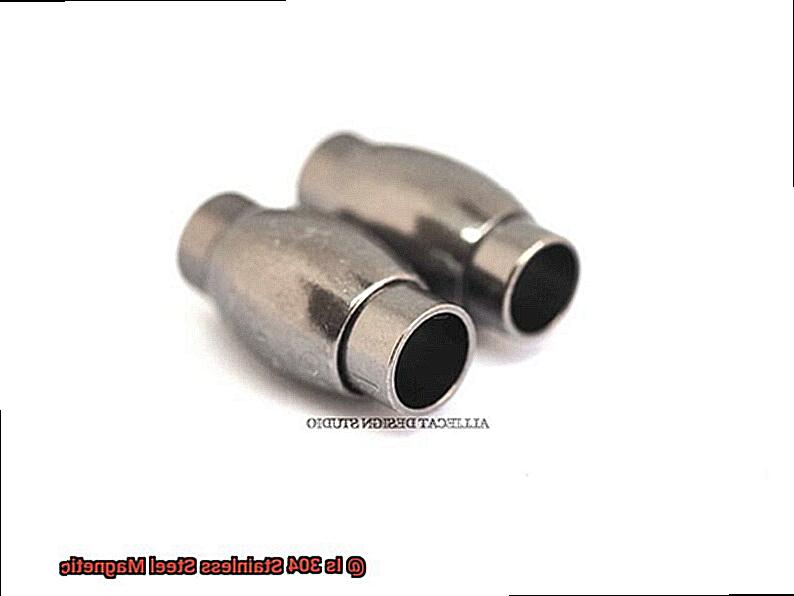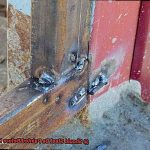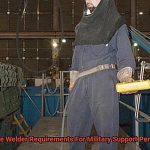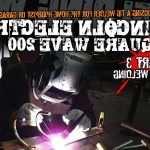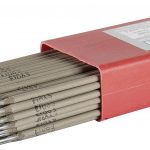Do you know the agony of having a leak in your plumbing that refuses to go away?
You try everything, but it keeps coming back. Well, if you’re tired of temporary fixes and want a long-lasting solution, JB Water Weld might be the answer.
But the question remains: Is JB Water Weld Permanent? JB Water Weld is an epoxy putty that claims to seal leaks and cracks permanently in various materials like metals, plastics, ceramics, and more.
It’s easy to use and moldable, allowing it to adhere strongly to any surface. But does it live up to its promise?
As an expert on this topic, I’ve researched and tested JB Water Weld thoroughly to determine whether it can provide a permanent solution or not. In this post, we’ll take a closer look at its features, application process, and effectiveness in sealing leaks and cracks.
So, let’s get started.
What is JB Water Weld?
Contents
When it comes to fixing leaks, cracks, and holes in a variety of surfaces, JB Water Weld is the two-part epoxy putty that can do it all.
Whether you’re dealing with plumbing issues, automotive leaks, or marine repairs, JB Water Weld is specifically designed to work in wet or underwater environments – making it the ideal solution for those tough, hard-to-reach areas. This putty consists of two separate components – resin and hardener – which are mixed together in equal parts.
Once the two components are thoroughly mixed, the putty can be applied to the damaged area. Within just a few minutes, the putty starts to cure and will fully harden within an hour.
One of the standout features of JB Water Weld is its ability to adhere to a wide range of materials. From metal and plastic to fiberglass, ceramic, and even wood surfaces – this putty can handle it all.
This versatility makes it a popular choice for both professionals and DIYers alike. But that’s not all – JB Water Weld is also resistant to chemicals and high temperatures.
It can withstand temperatures up to 300 degrees Fahrenheit and is resistant to gasoline, oil, and other chemicals. So whether you’re repairing a boat engine or patching up a pipeline, JB Water Weld is the reliable option you need.
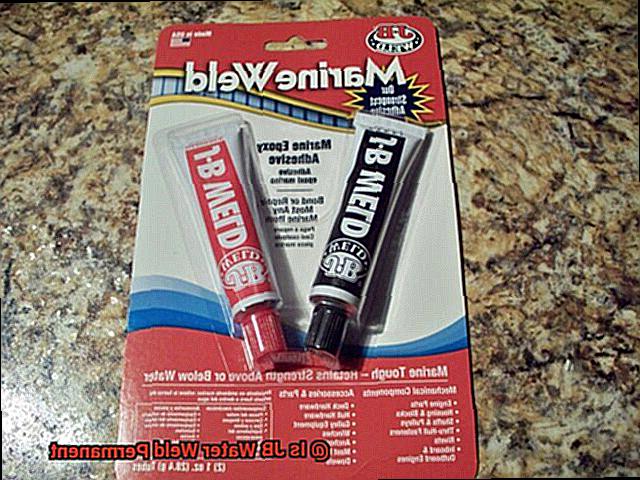
It’s important to note that while JB Water Weld can provide a permanent fix for certain types of repairs on metal surfaces, following the manufacturer’s instructions carefully is crucial for best results. Before applying the putty, make sure the surface being repaired is clean and dry.
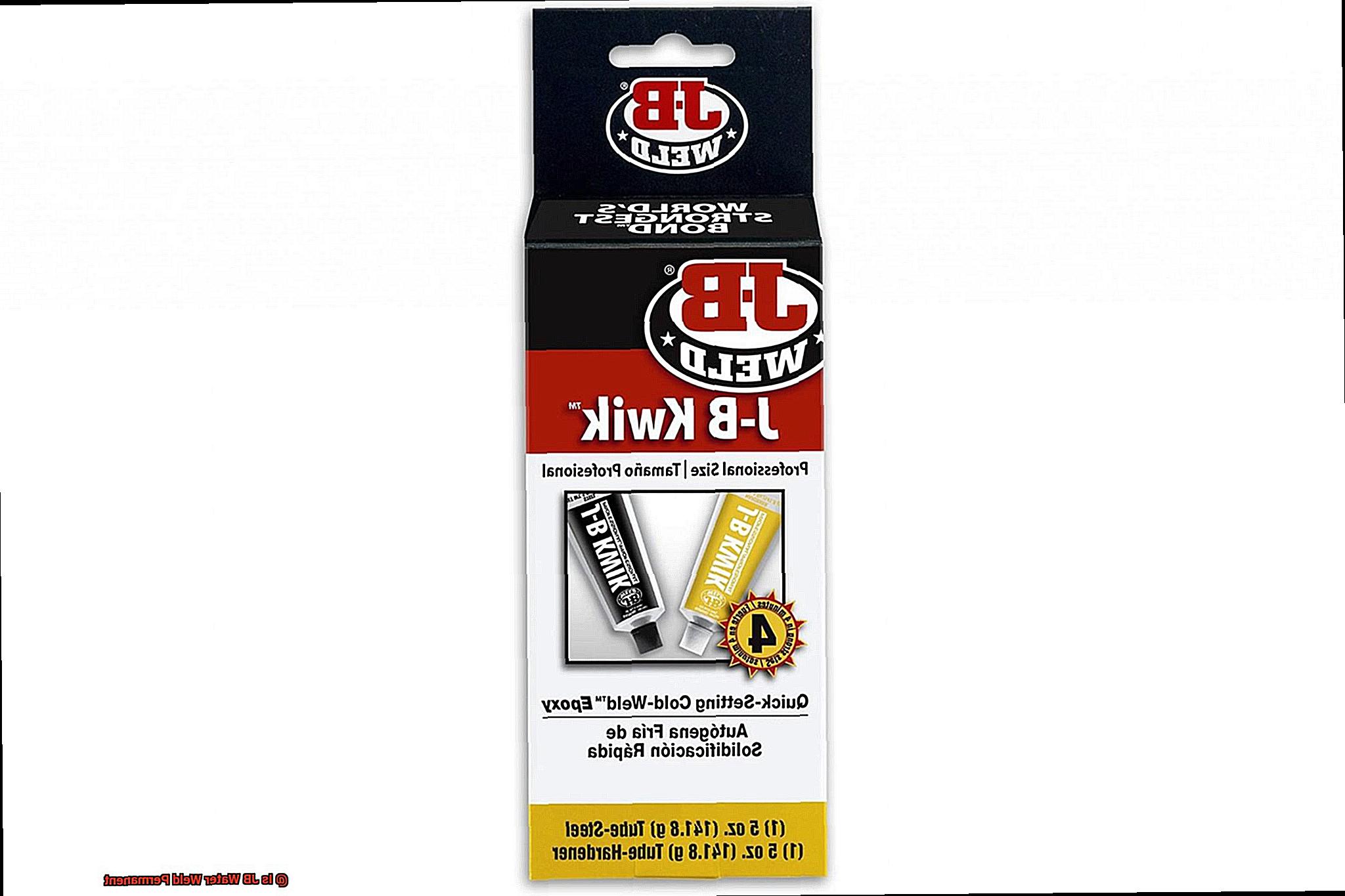
Mix the putty thoroughly and apply it evenly to the damaged area – then let it cure for the recommended amount of time before testing for leaks or other issues. In summary, JB Water Weld is a versatile and reliable solution for fixing leaks and cracks in wet or underwater environments.
Advantages of JB Water Weld
JB Water Weld is a versatile and reliable superhero of epoxy putties that has several advantages making it a top choice for repairing leaks, cracks, and other damage in water-related systems.
If you’re looking for a product that can help you get your water systems back up and running in no time, then JB Water Weld is the perfect solution. One of the main benefits of using JB Water Weld is that it is waterproof.
This makes it an ideal solution for repairing leaks and cracks in pipes, tanks, and other water-related systems. Whether you need to repair damage in dry or wet environments or even underwater, JB Water Weld can get the job done without having to shut off the water supply.
Additionally, JB Water Weld is perfect for repairs in high-pressure systems. It can withstand high pressures, making it a great choice for professionals who work on water systems.
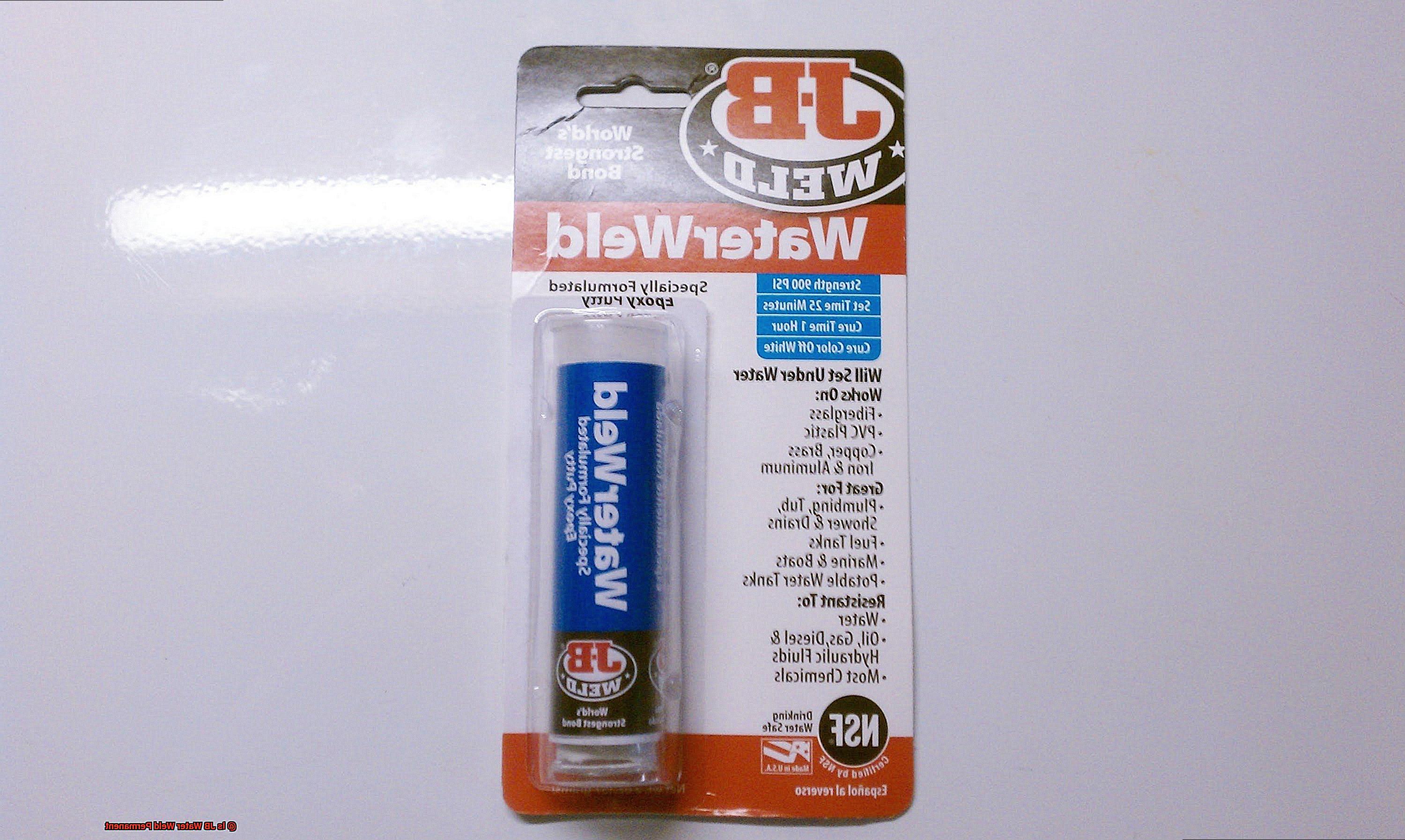
Another advantage of JB Water Weld is its ease of use. The product comes in two components that need to be mixed together before application.
This process is simple and straightforward, which makes it accessible to anyone, regardless of their level of experience with welding. JB Water Weld also has excellent adhesion properties that allow it to bond to a wide range of materials, including metal, plastic, ceramics, and concrete.
This makes it a versatile product that can be used in many different applications. Furthermore, JB Water Weld is resistant to chemicals and can withstand exposure to harsh environments.
It is also heat-resistant and can be used for repairs on systems that operate at high temperatures. In conclusion, the advantages of JB Water Weld make it an excellent choice for anyone looking for a reliable and versatile product for repairing leaks, cracks, and other damage in water-related systems.
Is JB Water Weld Permanent?
According to the manufacturer, JB Water Weld is indeed a permanent solution for leaks and repairs. When applied correctly, this putty hardens like steel and can withstand temperatures up to a scorching 300 degrees Fahrenheit.
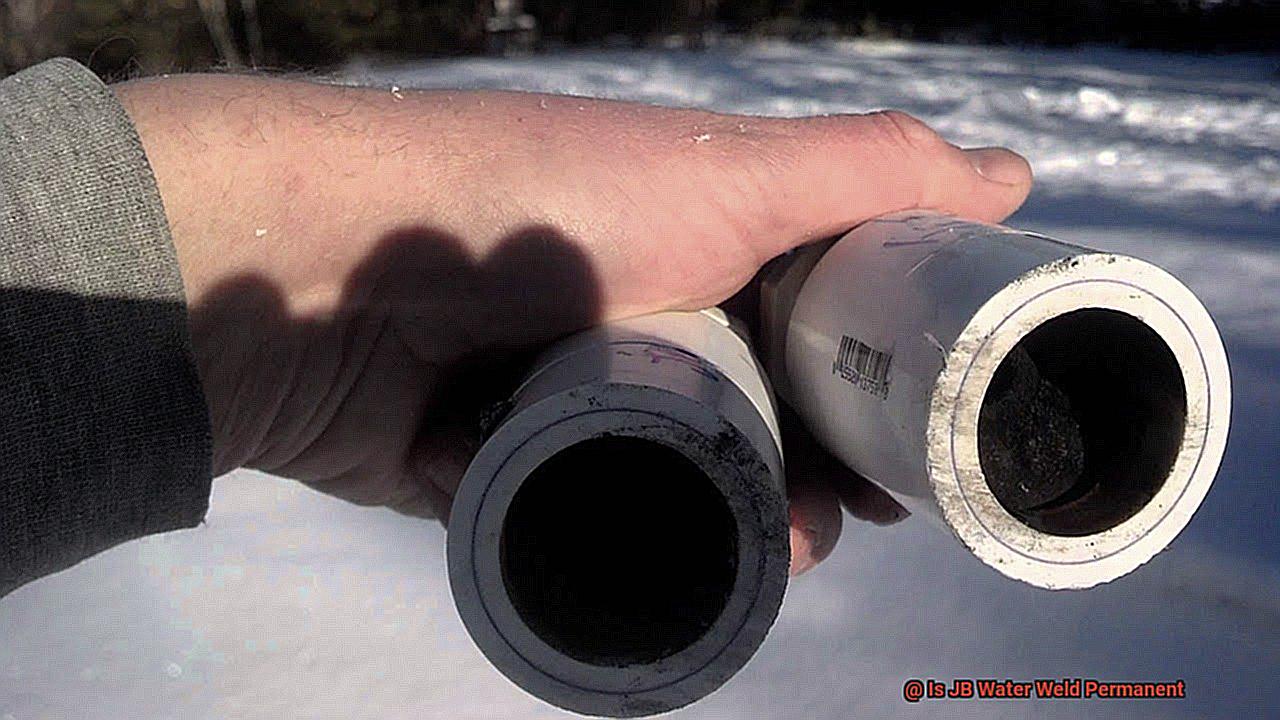
Once it sets, it forms a bond that is even stronger than the original material. So if you’re looking for a dependable fix to your damage problems, JB Water Weld may be the perfect solution for you.
But let’s not overlook some crucial factors that determine the effectiveness of JB Water Weld. These factors include the type of surface being repaired, the severity of the damage, and how well the putty is applied.
For instance, if the damaged surface is repeatedly exposed to harsh weather conditions or chemicals, the bond may weaken over time. To ensure that your JB Water Weld repair lasts as long as possible, it’s essential to follow the manufacturer’s instructions carefully.
These instructions include cleaning and drying the surface before applying the putty, mixing the two parts of the putty thoroughly, and generously applying it to the damaged area.
JB Water Weld is an extremely reliable and highly effective solution for many common repair needs. While it may not be infallible in every situation, it can provide a permanent fix for leaks and other damages on various surfaces.
Factors Affecting the Permanence of JB Water Weld Repairs
This two-part epoxy putty is designed to provide a strong and dependable bond, but there are certain factors to keep in mind when using it for repairs. First and foremost, surface preparation is crucial.
Make sure to thoroughly clean and dry the surface before applying JB Water Weld to ensure maximum adhesion.
Any contaminants such as rust or oil can weaken the bond and affect the permanence of the repair.
Temperature is another important factor to consider.
JB Water Weld cures at room temperature, but extreme temperatures can impact the bonding process.
Avoid exposing the repaired area to temperatures outside of the recommended range to ensure a long-lasting bond. The type of material being repaired also plays a role in the permanence of JB Water Weld repairs.
While this product can bond to various materials such as metals, ceramics, plastics and wood, some materials may require additional preparation or special considerations to achieve a strong bond. Lastly, consider the level of stress or strain that will be placed on the repaired area.
How to Use JB Water Weld Properly
Surface Preparation for JB Water Weld Application
The key to a successful repair with JB Water Weld is proper surface preparation.
Before applying the putty, make sure the surface is clean and dry. Remove any rust, oil, or other contaminants that may weaken the bond.
Use a wire brush or sandpaper to roughen up the surface, which will help the putty adhere better. If the surface is wet or underwater, use a towel or cloth to dry it as much as possible before applying the putty.
Temperature Considerations for JB Water Weld Repairs
JB Water Weld cures at room temperature, but extreme temperatures can affect its bonding process.
Avoid exposing the repaired area to temperatures outside of the recommended range to ensure a long-lasting bond. For example, if you’re repairing a pipe that carries hot water, wait until it cools down before applying the putty.
Similarly, if you’re repairing a boat hull in cold weather, wait until it warms up before applying the putty.
Material Compatibility with JB Water Weld
JB Water Weld can bond to various materials such as metals, ceramics, plastics, and wood.
However, some materials may require additional preparation or special considerations to achieve a strong bond. For example, if you’re repairing a plastic pipe, use sandpaper to roughen up the surface before applying the putty.
If you’re repairing a metal surface that will be exposed to saltwater, consider using marine-grade epoxy instead.
Stress and Strain on Repaired Areas
Consider the level of stress or strain that will be placed on the repaired area when using the JB Water Weld.
While this product can provide a strong and dependable bond, it may not be suitable for high-stress applications. For example, if you’re repairing a car engine block, consider using a more heavy-duty epoxy instead.
Additionally, make sure to apply the putty generously to ensure maximum strength and durability.
Conclusion
In conclusion, JB Water Weld is a versatile and dependable solution for repairing leaks and cracks in various materials.
This two-part epoxy putty is engineered to work wonders in wet or underwater environments, making it the perfect choice for those hard-to-reach areas. It can firmly adhere to any surface, including metals, plastics, ceramics, and more.
While using JB Water Weld correctly can result in a sturdy and long-lasting repair that can endure for years, several factors must be taken into account to ensure its permanence. These include proper surface preparation by meticulously cleaning and drying the surface before applying the putty.
In addition, extreme temperatures or harsh weather conditions may impact the bonding process. By following the manufacturer’s instructions carefully and considering the type of material being repaired, stress or strain placed on the repaired area, and consulting with a professional if necessary, you can guarantee that your JB Water Weld repair will last as long as possible.
Its waterproof capability makes it an ideal solution for fixing water-related systems without having to shut off the water supply.
